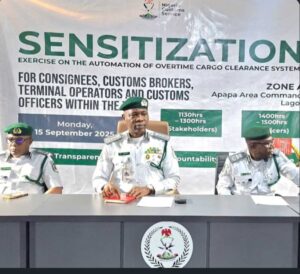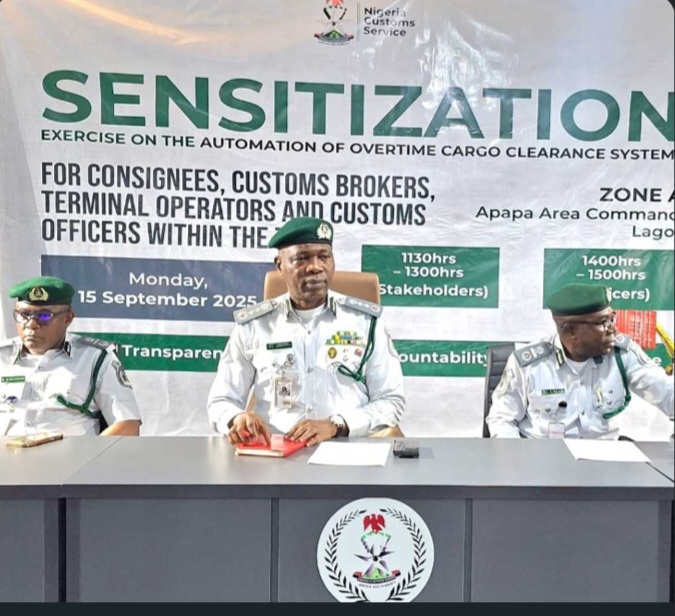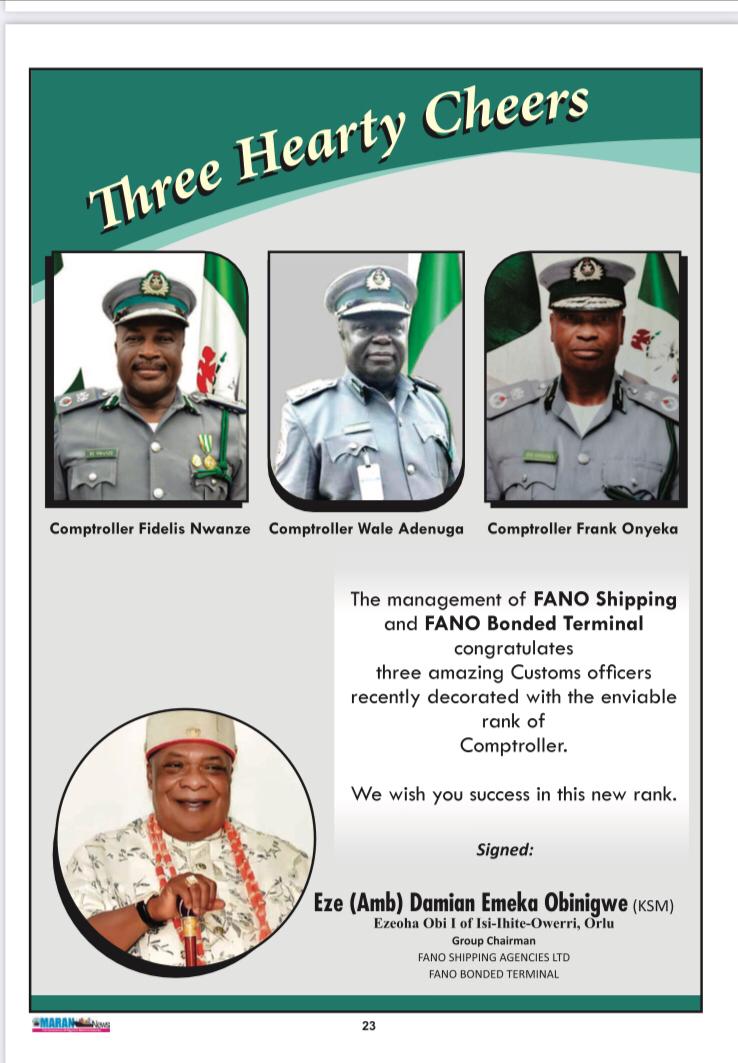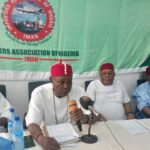By Sandra Chukwunyere
A concerning trend has emerged in the Nigeria Customs Service (NCS), with the Comptroller-General, Bashir Adewale Adeniyi MFR, revealing that a staggering over 50% of daily complaints are linked to overtime cargoes congesting Nigerian ports.
This revelation was made on Monday during a sensitization programme on the automation of overtime cargo clearance at Apapa Customs Command.
The issue of overtime cargoes has become a perennial problem, with some disputes taking years to resolve. In fact, Adeniyi disclosed that one case has been ongoing for nearly 15 years, resurfacing with every administration.
Despite the challenges, the Customs boss emphasized that the Service’s primary goal is not to generate revenue from auction sales, but to ensure efficient port operations.
In a bid to address the issue, the NCS has set up special desks in its headquarters and key commands to fast-track the clearance of imports for critical projects, including government initiatives, manufacturing, embassies, and international agencies. These projects are vital to the development of the country, and it is essential that they are not delayed.
The automation of overtime cargo clearance is a significant step towards reducing congestion at Nigerian ports. According to Adeniyi, the new system is designed to balance the interests of cargo owners, custodians, and other stakeholders while speeding up clearance times and cutting costs. The system aims to promote transparency, reduce corruption, and free up space at the ports.

The implementation of the automated system will be accompanied by increased engagement with stakeholders, including terminal operators and shipping companies. Adeniyi emphasized that the NCS is committed to working with stakeholders to ensure a smooth transition to the new system.
Assistant Comptroller-General of Customs, Isah Umar, hailed the automated system as a game-changer in the management and disposal of overtime cargo. He noted that the system’s dynamic nature will enable it to adapt to emerging technologies and global best practices, ensuring that the NCS remains at the forefront of port operations.
The benefits of the automated system are numerous, including greater transparency, improved data integrity, elimination of bottlenecks, reduced human interference, and harmonized documentation. These benefits will not only improve the efficiency of port operations but also enhance the overall experience of stakeholders.
In his remarks, Babatunde Keshiro, General Manager, Ports and Terminal Multiservices Limited (PTML), recommended that the automated system should be designed to prevent deliberate jettisoning of goods at port for overtime to invade import duty and other port charges.
He assured that PTML will continue to partner with the NCS to ensure the successful implementation of the new system.
The launch of the automated overtime cargo clearance system marks a significant milestone in the NCS’s efforts to reduce congestion at Nigerian ports and improve the efficiency of port operations. With the collaboration of stakeholders, the NCS is poised to make a lasting impact in the industry.
The NCS’s efforts to tackle overtime cargoes are part of a broader strategy to modernize its operations and improve the business environment.
By leveraging technology and collaboration, the Service aims to create a more efficient and effective port system that benefits all stakeholders.
The successful implementation of the automated system will require the active participation of all stakeholders, including cargo owners, custodians, terminal operators, and shipping companies. The NCS is committed to working with stakeholders to ensure a smooth transition to the new system and to address any challenges that may arise.

Overall, Newspoint247 reports that the automation of overtime cargo clearance is a significant step towards improving the efficiency of port operations in Nigeria.
With its potential to reduce congestion, promote transparency, and improve data integrity, the new system is poised to have a lasting impact on the industry.














